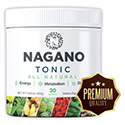Does Your Weight-loss Plan Cause Food Cravings?
When it comes to embarking on a weight loss journey, managing food cravings can often feel like navigating through a maze of temptations. These cravings, whether for sweets, salty snacks, or carb-loaded comfort foods, can exert a powerful pull, making it challenging to stick to a calorie-controlled diet. In this extended article, we will delve deeper into the complex interplay between weight loss plans and food cravings, exploring the psychological, physiological, and environmental factors that contribute to these cravings. Additionally, we will provide further insights into sustainable regimens that foster long-lasting weight loss success.
Understanding the Nuances of Food Cravings
Food cravings are multifaceted phenomena that arise from a combination of physiological, psychological, and environmental cues. Physiologically, cravings can be triggered by fluctuations in blood sugar levels, hormonal imbalances, or deficiencies in certain nutrients. For instance, a sudden craving for chocolate may indicate a need for magnesium, a mineral found in dark chocolate. On a psychological level, cravings often stem from emotional triggers such as stress, anxiety, or boredom. Many individuals turn to food as a coping mechanism to soothe negative emotions or reward themselves after a stressful day. Furthermore, environmental factors, such as the sight or smell of appetizing food, social gatherings, or advertising, can also provoke cravings.
The Role of Weight Loss Plans in Triggering Food Cravings
Traditional weight loss plans that emphasize strict calorie counting or elimination of entire food groups can inadvertently exacerbate food cravings. When the body perceives a calorie deficit, it may respond by increasing hunger signals and amplifying cravings as a survival mechanism. Additionally, restrictive diets that label certain foods as “off-limits” can intensify cravings for forbidden foods, leading to feelings of deprivation and eventual binge-eating episodes. Moreover, the psychological stress of adhering to rigid dietary rules can elevate cortisol levels, further fueling cravings for high-calorie comfort foods.
Strategies for Managing Food Cravings within a Weight Loss Plan
To successfully navigate food cravings while pursuing weight loss goals, it is essential to adopt strategies that address both the underlying causes of cravings and the behavioral responses to them. Here are additional strategies to complement the regimens mentioned earlier:
- Meal Planning and Preparation: Planning balanced meals and snacks in advance can help prevent impulsive food choices driven by cravings. Stocking the pantry and fridge with nutritious options ensures that healthier alternatives are readily available when cravings strike.
- Hydration: Dehydration can sometimes masquerade as hunger, leading to unnecessary snacking. Drinking an adequate amount of water throughout the day can help stave off cravings and keep hunger pangs at bay.
- Healthy Substitutions: Instead of completely denying cravings, consider healthier alternatives that satisfy the same taste or texture preferences. For example, swapping out potato chips for air-popped popcorn or opting for a piece of fruit instead of sugary snacks can help curb cravings without derailing progress.
- Mindfulness Techniques: Practicing mindfulness techniques, such as deep breathing exercises, meditation, or progressive muscle relaxation, can help reduce stress levels and diminish the intensity of cravings. By cultivating awareness of internal cues and emotions, individuals can develop healthier responses to cravings.
By integrating these additional strategies into a comprehensive weight loss plan, individuals can effectively manage food cravings and create sustainable habits that support long-term success. Remember, achieving lasting weight loss is not about perfection but about progress and persistence in making healthier choices day by day. With patience, self-compassion, and a strategic approach, it is possible to overcome cravings and achieve a healthier, happier lifestyle.










